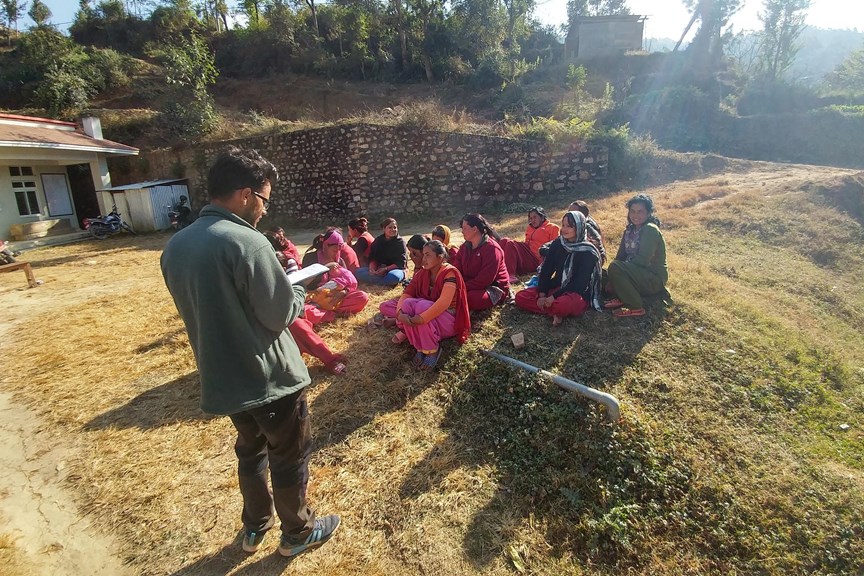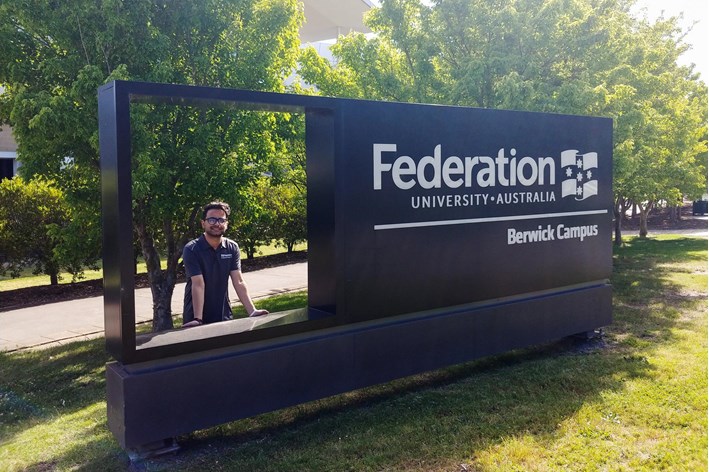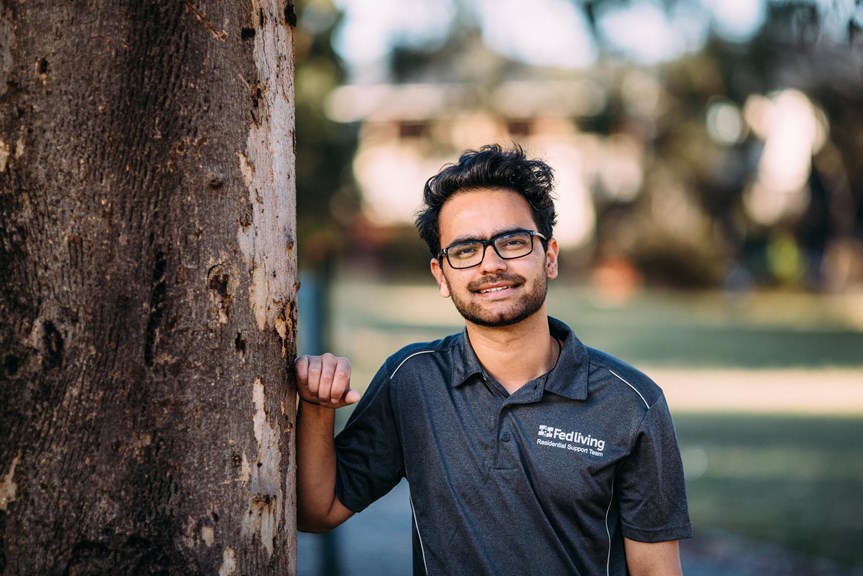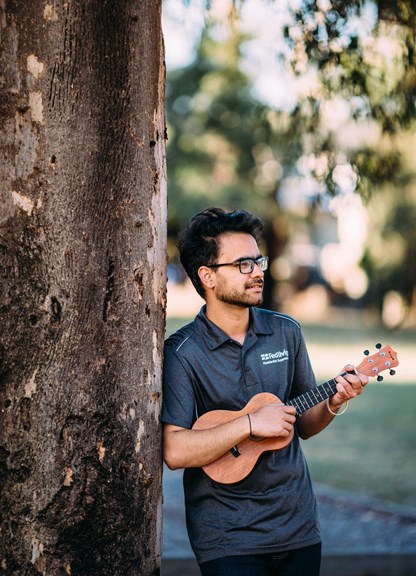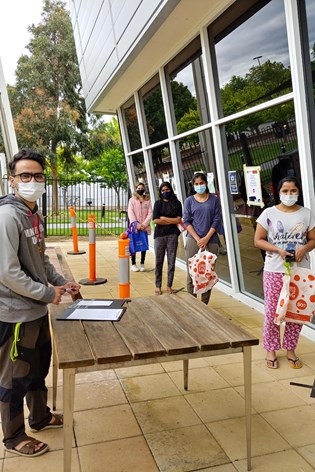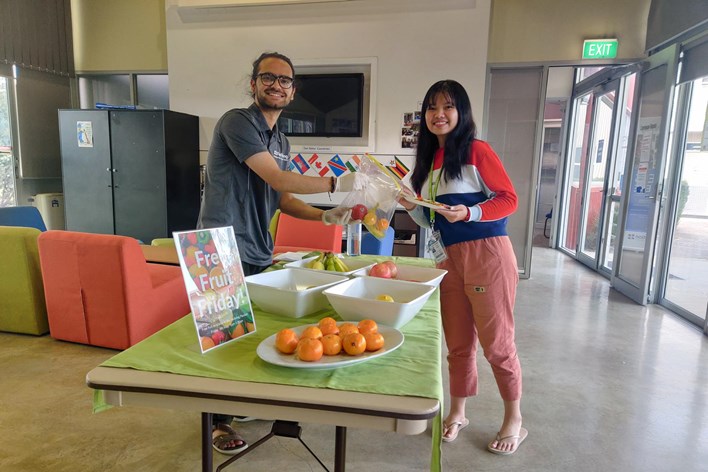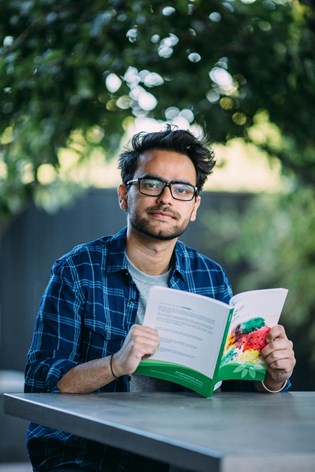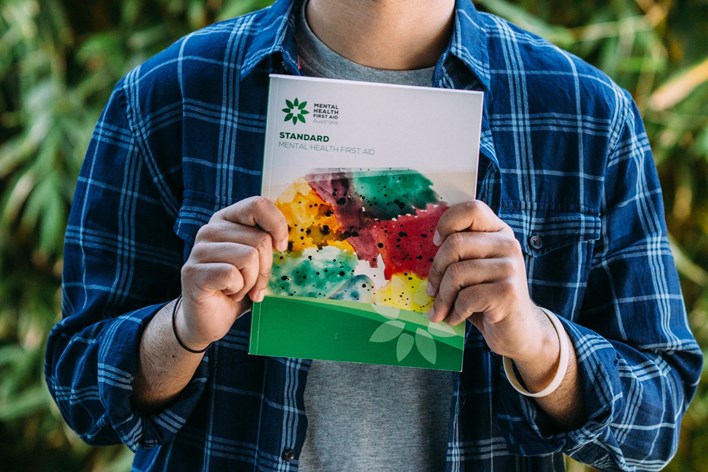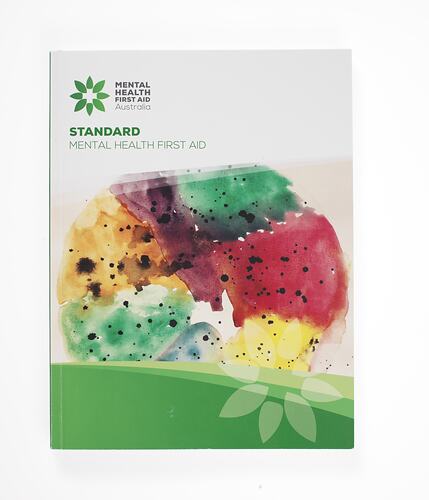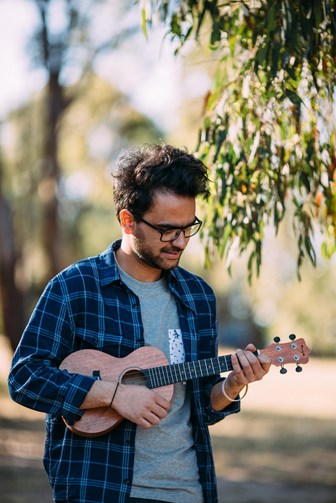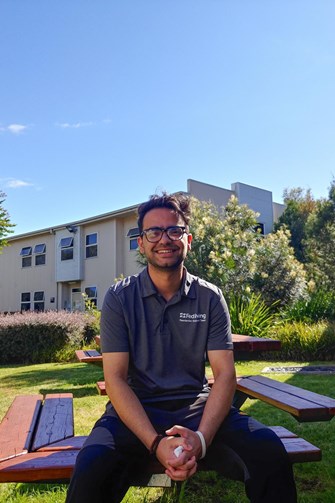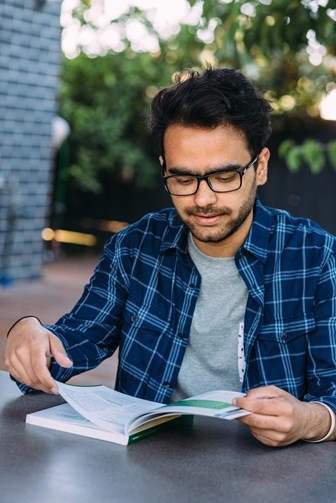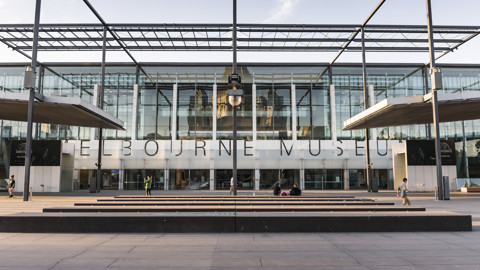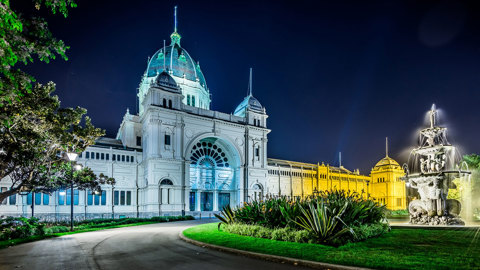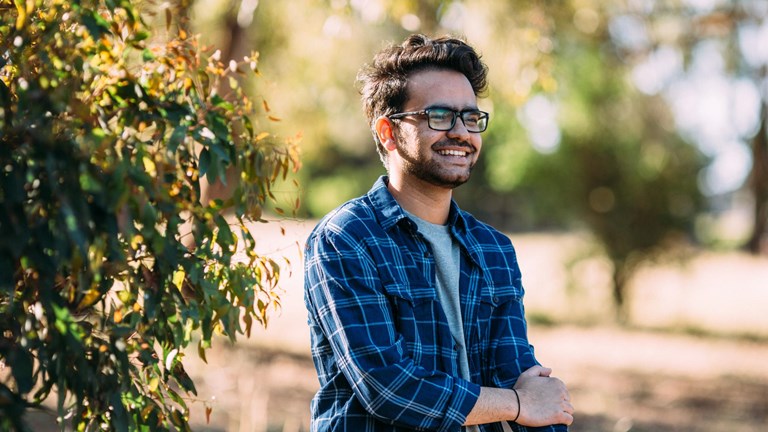
Pranaya Lohani’s International Student Community
Twenty-seven-year-old Nepalese student Pranaya Lohani is no stranger to unforeseen, life-altering events.
In 2015, Pranaya and his mum were about to eat lunch in their Kathmandu home when the walls began to shake and sway. They held onto each other in the building’s stairwell, then, when safe, escaped into nearby fields where terrified neighbours were beginning to gather.
‘The expression on [the neighbours’] faces is something I can never get out of my head,’ Pranaya recalls in a July interview with the Pakenham Gazette. ‘It was just blank and no one could muster any words.’
Although Pranaya and his immediate family were not harmed, the earthquake, a whopping 7.8 on the richter scale, claimed the lives of nearly 9000 people and displaced hundreds of thousands.
Pranaya was studying social work at the time and jumped right into volunteering, distributing relief materials to affected community members and assisting humanitarian organisations. The experience was a huge turning point for Pranaya and would go on to influence his response to the COVID-19 pandemic.
'The subsequent support and camaraderie among the Nepalese really taught me a valuable lesson in life. The whole event and the aftermath of it pushed my helping nature to another level, encouraged me further.'Pranaya Lohani
In 2019, four years after the Gorkha earthquake, Pranaya moved to Melbourne to pursue higher studies.
‘I had done my previous degree in social work back in Nepal, so this is what I wanted to do for my post-grad studies too,’ he recalls. ‘I had done a fair bit of research about universities all around that offered this degree but ultimately my heart settled with Australia because of its wide range of services and the huge scope that is available in this field of work.’
Although it took some time to adjust to the Australian education system, Pranaya immersed himself in university life and soon found himself feeling at home at Federation University’s Berwick Campus.
‘Studying in a university, making friends from many parts of the world, getting opportunities to contribute, and learning the culture here [in Melbourne] has been just incredible,’ he says. ‘The university life is something I cherish already and it has taught me so many things about myself as an individual.’
But the very last thing Pranaya could have anticipated happening while he was studying abroad was a global pandemic. In March 2020, as COVID-19 exploded in Australia, Victoria announced a state of emergency and a subsequent lockdown. Pranaya recollects the initial shock and unreality of it all:
‘The first few weeks when the virus arrived, I was thinking to myself, is this really happening? I was staying in uni accommodation and had attained the role of residential advisor. I realised the severity [of the situation] when we had our first meeting with the upper hierarchy from the uni. Talks of lockdown and support to the students started to come up strongly. That hit me hard and I kind of knew we could be in for something bigger.’
What soon emerged in the media and university sectors more broadly was the immediate and severe impacts lockdown was having on international university students.
‘Having to adjust to online learning at first was really tough for me personally as I just could not concentrate,’ Pranaya recalls. ‘[The] majority of the international students went through a tough period. Firstly, they had to adapt to a totally new method of learning which they were not used to, and had not hoped to do.’
A major drawcard of studying abroad is being able to engage with and connect to fellow students and university staff face-to-face, and attending classes and lectures on campus is a huge part of the university experience. But while virtual learning has been a key struggle for many students, Pranaya identifies the financial pressures of COVID-19 as the dominating stressor.
‘Managing the tuition fees, rent [and] groceries was getting hard for the majority of the students as they could hardly get out and get jobs,’ he says.
'This was even more so difficult for the students who had just arrived for the February intake and everything shut down within a month after their arrival. That brought out many challenges mentally as well. Being stuck within the four walls for a longer period of time and being away from your family no doubt is quite a tough thing to beat.'
Pranaya experienced firsthand the challenges of being housebound in student accommodation, but turned to the creative arts for entertainment and stimulus.
‘I knew I had to find something to do or develop a new hobby of some sort just to get my head clear and find a positive distraction,’ he recalls. ‘And enter – the ukulele! I started learning it and eventually managed to play a song or two. I just plucked on the strings and it made me relax and focus on positive things.’
As well as music, what ultimately helped Pranaya through the uncertainties and anxieties of the pandemic was getting out into the community and helping others.
‘I guess I just started keeping myself busy and helping out in the student pantry at the uni,’ he says. ‘Attending meetings, acting as a liaison between the students and the staff, and encouraging students to participate in online events to uplift the mood.’
Pop-up grocery stores throughout Victoria, which offered fresh produce and food staples free of charge, provided crucial relief for the international student community. Pranaya’s volunteer work at his own university’s foodbank proved both rewarding and motivating and reflected his upbringing in Nepal.
‘It is just a part of me and who I am, really, wanting to help out and create a close bond with the people I am living together with,’ he says.
‘I was brought up with values that put family and togetherness first, respecting everyone around you and helping with whatever you can. So, having been brought up with those values from an early age, I just wanted to be a part of it and lend a hand.'Pranaya Lohani
Along with food banks, additional support services were set up for many student communities that Pranaya says were a considerable help.
‘The support from the universities, various support agencies and organisations, the way they organised and collaborated to help the international students was truly fantastic,’ he attests. ‘A unity could be seen, and the support-givers empathised with what the students were going through. It was really great to see everyone coming together for a great cause.’
Kathy Racunica, head of Federation University’s Berwick Campus (where Pranaya studies), attributes this success to an International Student Hardship Fund that was created specifically to assist international students in need throughout COVID-19.
‘We raised significant funds through staff donations,’ she explains. ‘I believe a number of Universities in Victoria (and Australia) established similar funding.’
It was this solidarity and mutual support between students, relief organisations and Federation university staff that Pranaya maintains was a saving grace for him and fellow international students:
‘The support […] was fantastic to see during the pandemic, which I really hope [will] continue in difficult times in the future. I would love to see more universities follow suit with what some of the universities, including Federation, did to help international students.’
As well as the support from university staff and students, Pranaya felt uplifted by his close circle of friends and family members: ‘During the pandemic, I was quite lucky to have my loved ones constantly checking in and encouraging me to keep safe and be positive. My family back home in Nepal, as well as my brothers and cousins who are in different parts of the world, as well as friends and relatives here in Australia and in Nepal, constantly gave me the support and the will to get through that difficult, unstable period.’
As witnessed in the aftermath of Nepal’s 2015 earthquake, Pranaya emphasises the fundamental role community spirit and comradeship plays to see people through times of hardship and suffering.
‘I think experiences also teach you along the way,’ he reflects. ‘I’ve learnt that times change and it’s never always dark. It is really easy to get lost and be hopeless but you have to instil in your mind that the good times will definitely come, [and] remind yourself that you are never really alone.’
Not only did Pranaya’s COVID-19 relief work prove a useful distraction from lockdown and the virus, it also enriched his university life and connected him to others.
‘I loved every moment of it,’ he says. ‘I got to make new friends, it helped me explore more about myself and identify my capabilities. The most important thing […] was the constant interaction with the people, just talking about ordinary stuff or sometimes heavy issues like life and the situation and hearing their views about various things made me feel really good. Sharing experiences with them and learning about what they believe in, what their interests are, was great.’
The international student community in Melbourne, with its diversity and magnitude, represents an important part of the city’s cultural identity. As Federation University’s Kathy Racunica acknowledges, ‘We have hundreds of thousands of international students in Victoria and their contribution on many fronts is significant and extraordinarily positive year in year out. Reflecting their experience during COVID is very important.’
Pranaya’s ongoing resilience and optimism in the face of hardship is certainly an inspiration to us all, and a welcome reminder of the power of community and kinship.
With the support of the Office for Suburban Development, this story and accompanying photographs has been acquired into Museums Victoria’s State Collection for posterity, along with Pranaya’s Federation University T-Shirt, ukulele and ‘Mental Health First Aid’ textbook. These items will provide a lasting reminder not only of the international student experience during COVID-19, but the generosity of spirit that saw individuals like Pranaya Lohani work towards supporting one another through this challenging time.
This story was collected by Catherine Forge and Moya McFadzean and written by Charlotte Callander in collaboration with Pranaya Lohani.
